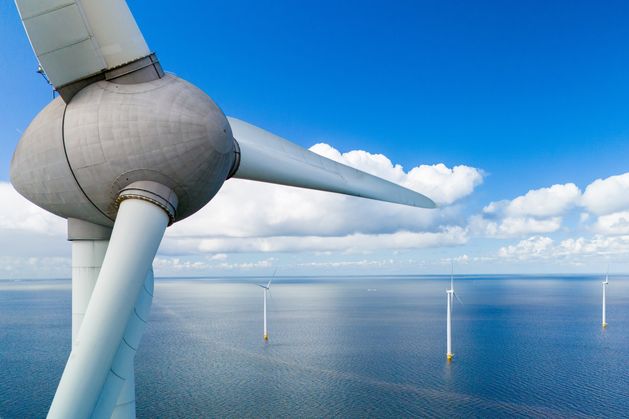The money was a performance security guarantee and became forfeit when the developer pulled out of the project to develop a major windfarm off the coast of Connemara.
Documents released to the Irish Independent under a Freedom of Information request show officials at the Department of Climate Energy and the Environment wrote to the promoters of the Sceirde scheme on June 5 this year, in response to an earlier April 25 letter notifying Environment Minister Darragh O’Brien that they’d pulled out of the project.
Officials said that meant the bond had been triggered.
“I wish to inform you that the Minister considers your letter of 25 April to constitute a notification of the abandonment of the project, and in the accordance with clause 8.2 of the implementation of the Agreement, the Minister is exercising his right to make a demand to [redacted] for payment of €35,478,000 under the Performance Security pursuant to its term.”
The Irish Independent understands that Corio, as the main player in the development, paid over the money.
A separate email on June 12 confirmed that the Department had already recovered the performance security.
This email from a department official to an unnamed party involved in the stalled project said there was no plan to publicise the issue.
“We don’t have any plans for a press announcement on the matter,” they said. “However, should we receive press queries on this, or a parliamentary question, the matter may become public.”
On September 9 this year the Sunday Independent reported that the money had been recouped.
In 2023, Sceirde Rocks was among the projects to be selected in the country’s first offshore wind auction and was set to generate enough electricity to power over 350,000 homes.
In April this year however, Corio, owned by Australian investment giant Macquarie Asset Management, announced it could no longer develop the windfarm after identifying “significant structural and technical challenges” specific to the Sceirde Rocks project site.
The developer added it could not guarantee the windfarm’s deliverability or the safety of project staff and contractors. That meant forfeiture of the performance bond.
Three other projects that were successful in the first offshore auction also lodged performance security bonds, worth €20 per megawatt-hour. These included Codling Wind Park (€102.5m), Dublin Array (€64.5m) and North Irish Sea Array (€39.4m).
Corio’s decision to pull out of the project was a massive blow to the Government’s hopes of delivering at least 5GW of offshore wind by 2030.
There is pessimism in the sector that Ireland can hit its 2030 targets. “We cannot afford to lose projects,” industry lobby group Wind Energy Ireland said
In April, Taoiseach Micheál Martin announced a new Climate Investment Clearing House, aiming to accelerate the development of offshore wind.
Despite early promise, Ireland only has one operational offshore windfarm in Arklow, Wicklow, which was first developed over 20 years ago.
